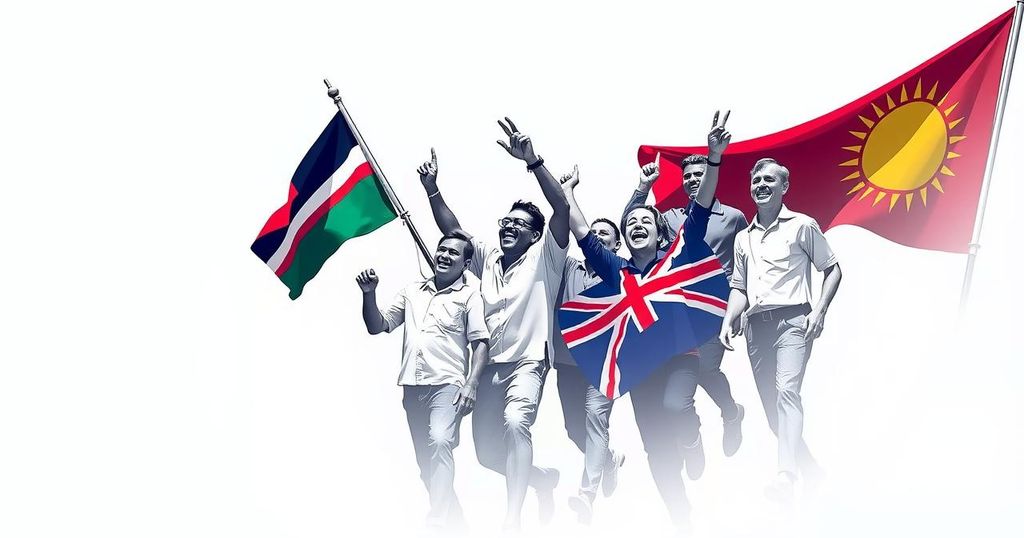Mauritius Opposition Secures Landslide Victory in National Election

The opposition coalition has achieved a sweeping victory in Mauritius, winning all parliamentary seats in the recent election, marking a major rejection of the ruling government led by Prime Minister Pravind Jugnauth, who acknowledged his coalition’s loss. Navin Ramgoolam returns as prime minister following this significant electoral shift.
In a historic electoral sweep, the opposition coalition in Mauritius has secured all parliamentary seats in a decisive victory over the governing coalition led by Prime Minister Pravind Jugnauth. The opposition’s triumph marks a significant shift in the political landscape of the island nation, as the governing coalition, known as the Militant Socialist Movement, managed to win none of the contested 62 seats in this election. According to preliminary results from the 21 constituencies, the Alliance for Change coalition will see Navin Ramgoolam return to the role of prime minister, having previously held the position from 1995 to 2000 and again from 2005 to 2014. Mr. Jugnauth, who has been in power since 2017, acknowledged the overwhelming defeat as results revealed the dominating performance of the opposition across the country. His administration faced scrutiny due to allegations of corruption, which further contributed to the voters’ rejection. As he remarked, “The population has decided to choose another team. I wish good luck to the country,” noting the shift in public sentiment towards the ruling government. Official confirmation of the results, including two additional seats from Rodrigues Island, is anticipated shortly, although the opposition has already claimed victory in all 60 announced seats. The total number of parliamentary seats will expand to 70, following nominations by the Electoral Supervisory Council. Approximately one million individuals participated in this election, which represents a significant moment in Mauritius’s democratic history since its independence in 1968.
Mauritius is acclaimed as one of Africa’s most stable democracies, underpinned by a diverse economy based on finance, tourism, and agriculture. The recent elections, marking the 12th since independence from British colonial rule, have seen increased political engagement from citizens, with over one million registered voters. The governing coalition led by Prime Minister Jugnauth has faced allegations of corruption, particularly after leaked recordings sparked widespread public distrust. This political context paved the way for a significant electoral shift in favor of the opposition.
The recent election results in Mauritius reflect a crucial transition in governance, as the opposition coalition achieved a historic victory, claiming all parliamentary seats. Prime Minister Pravind Jugnauth’s admission of defeat and his statements about the electorate’s choice highlight the significant discontent toward the current administration, primarily driven by corruption allegations. With Navin Ramgoolam set to return as prime minister, the election signals a new chapter for Mauritius amidst its evolving democratic journey.
Original Source: www.expressandstar.com







